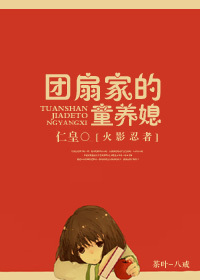哲学史-philosophy of history(英文版)-第4章
按键盘上方向键 ← 或 → 可快速上下翻页,按键盘上的 Enter 键可回到本书目录页,按键盘上方向键 ↑ 可回到本页顶部!
————未阅读完?加入书签已便下次继续阅读!
our times。 Johannes v。 Müller; in his Universal History as also in his History of Switzerland; had
such moral aims in view。 He designed to prepare a body of political doctrines for the instruction of
princes; governments and peoples (he formed a special collection of doctrines and reflections; …
frequently giving us in his correspondence the exact number of apophthegms which he had
piled in a week); but he cannot reckon this part of his labour as among the best that he
acplished。 It is only a thorough; liberal; prehensive view of historical relations (such e。g。 as
we find in Montesquieu's Esprit des Loix); that can give truth and interest to reflections of this
order。 One Reflective History therefore supersedes another。 The materials are patent to every
writer: each is likely enough to believe himself capable of arranging and manipulating them; and we
may expect that each will insist upon his own spirit as that of the age in question。 Disgusted by
such reflective histories readers have often returned to a with pleasure to a narrative adopting no
particular point of view。 These certainly have their value; but for the most part they offer only
material for history。 We Germans are not content with such。 The French; on the other hand;
display great genius in reanimating bygone times; and in bringing the past to bear upon the present
conditions of things。
3。 Critical History
§ 9
The third form of Reflective History is the Critical。 This deserves mention as pre…eminently the
mode of treating history; now current in Germany。 It is not history itself that is here presented。 We
might more properly designate it as a History of History; a criticism of historical narratives and an
investigation of their truth and credibility。 Its peculiarity in point of fact and of intention; consists in
the acuteness with which the writer extorts something from the records which was not in the
matters recorded。 The French have given as much that is profound and judicious in this class of
position。 But they have not endeavoured to pass a merely critical procedure for substantial
history。 They have duly presented their judgments in the form of critical treatises。 Among us; the
so…called “higher criticism;” which reigns supreme in the domain of philology; has also taken
possession of our historical literature。 This “higher criticism” has been the pretext for introducing
all the anti…historical monstrosities that a vain imagination could suggest。 Here we have the other
method of making the past a living reality; putting subjective fancies in the place of historical data;
fancies whose merit is measured by their boldness; that is; the scantiness of the particulars on
which they are based; and the peremptoriness with which they contravene the best established
facts of history。
§ 10
4。 The last species of Reflective History announces its fragmentary character on the very face of it。
It adopts an abstract position; yet; since it takes general points of view (e。g。 as the History of Art;
of Law; of Religion); it forms a transition to the Philosophical History of the World。 In our time this
form of the history of ideas has been more developed and brought into notice。 Such branches of
national life stand in close relation to the entire plex of a people's annals; and the question of
chief importance in relation to our subject is; whether the connection of the whole is exhibited in its
truth and reality; or referred to merely external relations。 In the latter case; these important
phenomena (Art。; Law; Religion; &c。) appear as purely accidental national peculiarities。 It must be
remarked that; when Reflective History has advanced to the adoption of general points of view; if
the position taken is a true one; these are found to constitute … not merely external thread; a
superficial series … but are the inward guiding soul of the occurrences and actions that occupy a
nation's annals。 For; like the soul…conductor Mercury; the Idea is in truth; the leader of peoples
and of the World; and Spirit; the rational and necessitated will of that conductor; is and has been
the director of the events of the World's History。 To bee acquainted with Spirit in this its office
of guidance; is the object of our present undertaking。 This brings us to 。。。
Philosophic History
III。 Philosophic History
i。 Reason Governs the World … ii。 The Destiny of Reason … iii。 World History
§ 11
The third kind of history; — the Philosophical。 No explanation was needed of the two previous
classes; their nature was self…evident。 It is otherwise with this last; which certainly seems to require
an exposition or justification。 The most general definition that can be given; is; that the Philosophy
of History means nothing but the thoughtful consideration of it。 Thought is; indeed。; essential to
humanity。 It is this that distinguishes us from the brutes。 In sensations cognition and intellection; in
our instincts and volitions; as far as they are truly human Thought is an invariable element。 To insist
upon Thought in this connection with history; may; however; appear unsatisfactory。 In this science
it would seem as if Thought must be subordinate to what is given to the realities of fact; that this is
its basis and guide: while Philosophy dwells in the region of self…produced ideas; without reference
to actuality。 Approaching history thus prepossessed; Speculation might be expected to treat it as a
mere passive material; and; so far from leaving it in its native truth; to force it into conformity with a
tyrannous idea; and to construe it; as the phrase is; “à priori。” But as it is the business of history
simply to adopt into its records what is and has been; actual occurrences and transactions; and
since it remains true to its character in proportion as it strictly adheres to its data; we seem to have
in Philosophy; a process diametrically opposed to that of the historiographer。 This contradiction;
and the charge consequent brought against speculation; shall be explained and confuted。 We do
not; however; propose to correct the innumerable special misrepresentations; trite or novel; that
are current respecting the aims; the interests; and the modes of treating history; and its relation to
Philosophy。
§ 12
The only Thought which Philosophy brings with it to the contemplation of History; is the simple
conception of Reason; that Reason is the Sovereign of the World; that the history of the world
therefore; presents us with a rational process。 This conviction and intuition is a hypothesis in the
domain of history as such。 In that of Philosophy it is no hypothesis。 It is there proved by
speculative cognition; that Reason — and this term may here suffice us; without investigating the
relation sustained by the Universe to the Divine Being; — is Substance; as well as Infinite Power;
its own Infinite Material underlying all the natural and spiritual life which it originates; as also the
Infinite Form; — that which sets this Material in motion。 On the one hand; Reason is the substance
of the Universe; viz。 that by which and in which all reality has its being and subsistence。 On the
other hand; it is the Infinite Energy of the Universe; since Reason is not so powerless as to be
incapable of producing anything but a mere ideal; a mere intention — having its place outside
reality; nobody knows where; something separate and abstract; in the heads of certain human
beings。 It is the infinite plex of things; their entire Essence and Truth。 It is its own material
which it mits to its own Active Energy to work up; not needing; as finite action does; the
conditions of an external material of given means from which it may obtain its support; and the
objects of its activity。 It supplies its own nourishment and is the object of its own operations。
While it is exclusively its own basis of existence; and absolute final aim; it is also the energising
power realising this aim; developing it not only in the phenomena of the Natural; but also of the
Spiritual Universe — the History of the World。 That this “Idea” or “Reason” is the True; the
Eternal; the absolutely powerful essence; that it reveals itself in the World; and that in that World
nothing else is revealed but this and its honour and glory — is the thesis which; as we have said;
has been proved in Philosophy and is here regarded as demonstrated。
§ 13
In those of my hearers who are not acquainted with Philosophy; I may fairly presume; at least; the
existence of a belief in Reason; a desire; a thirst for acquaintance with it; in entering upon this
course of Lectures。 It is in fact; the wish for rational insight; not the ambition to amass a mere heap
of acquisitions; that should be presupposed in every case as possessing the mind of the learner in
the study of science。 If the clear idea of Reason is not already developed in our minds; in beginning
the study of Universal History; we should at least leave the firm; unconquerable
![[一受二攻]蓝颜不薄命alpha [完结]封面](http://www.cijige2.com/cover/noimg.jpg)

